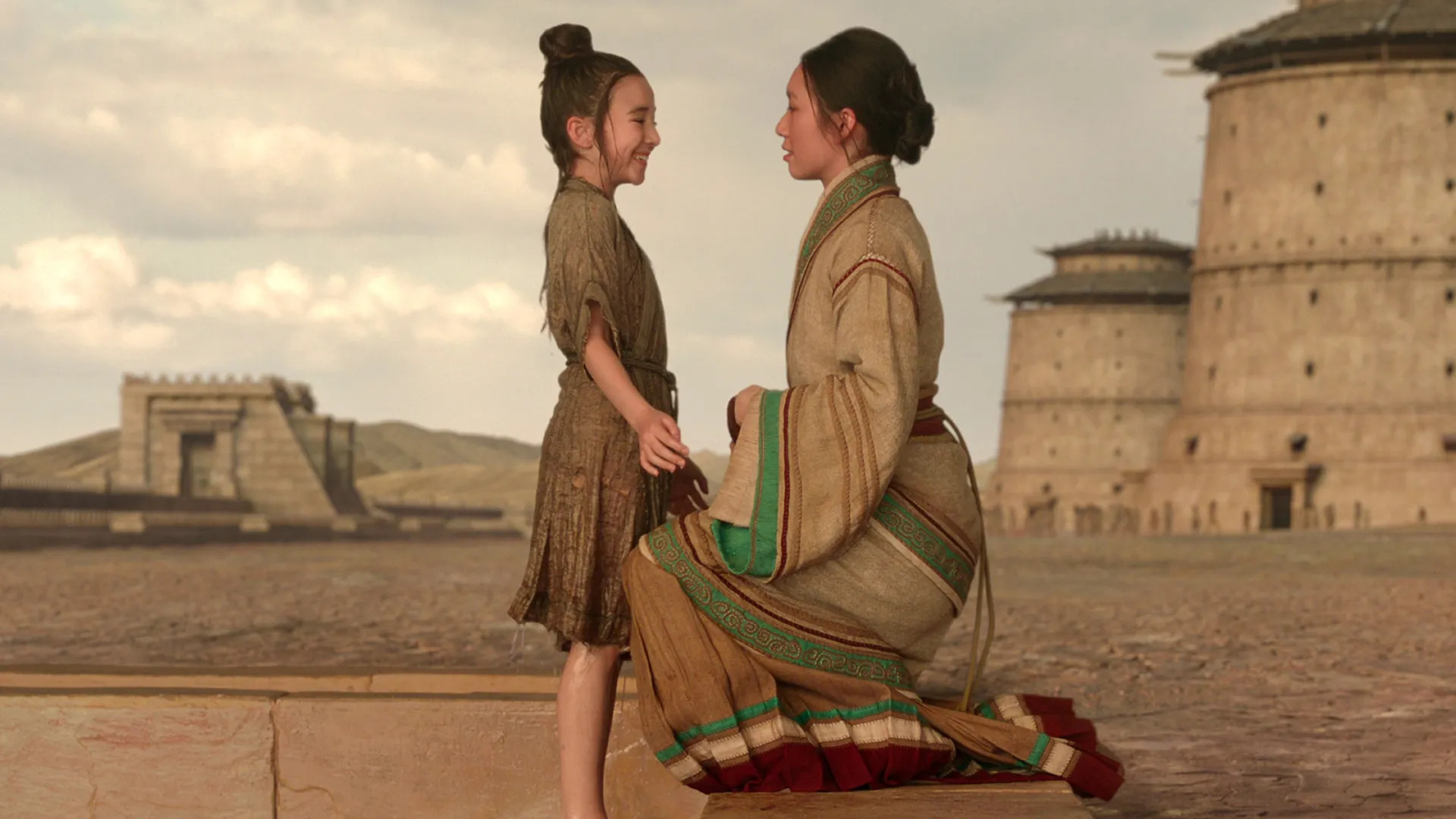With a new Anglophone adaptation of Liu Cixin’s totemic novel series, the world is once-more fixated on Chinese science-fiction
You know about The Three Body Problem. Every science fiction fan, world literature aficionado and their dog has heard of it, even if they haven’t read the books. The catchy name is the marketable English title for Chinese author Liu Cixin’s novel series Remembrance of Earth’s Past (2006-10), and now with the release of 3 Body Problem, a new Netflix TV adaptation helmed by David Benioff and Dan Weiss of Game of Thrones (2011–2019) fame, it seems to be the focal point for everyone from old school Heinlein nerds to the ‘it’s not really sci-fi’ literati.
But really, the thing that seems to actually be making waves is not just this ‘new’ science fiction story, but Chinese Sci-fi. The very concept that this huge country, which Western readers knew predominantly from a library of classic novels and misery biographies, could produce something creative and forward-looking seemed like an anathema. All until Liu’s winning of the Hugo Award – the Oscars of the science fiction world – in 2015, and the West began ‘discovering’ China’s speculative fiction. Three Body has since become such a gateway work for Anglophone readers, that as a speaker and consultant, I know I can reference it, among my small bag of icebreakers, along with food, film and Chinese drama, to generate a touchstone moment of both comfort and excitement.
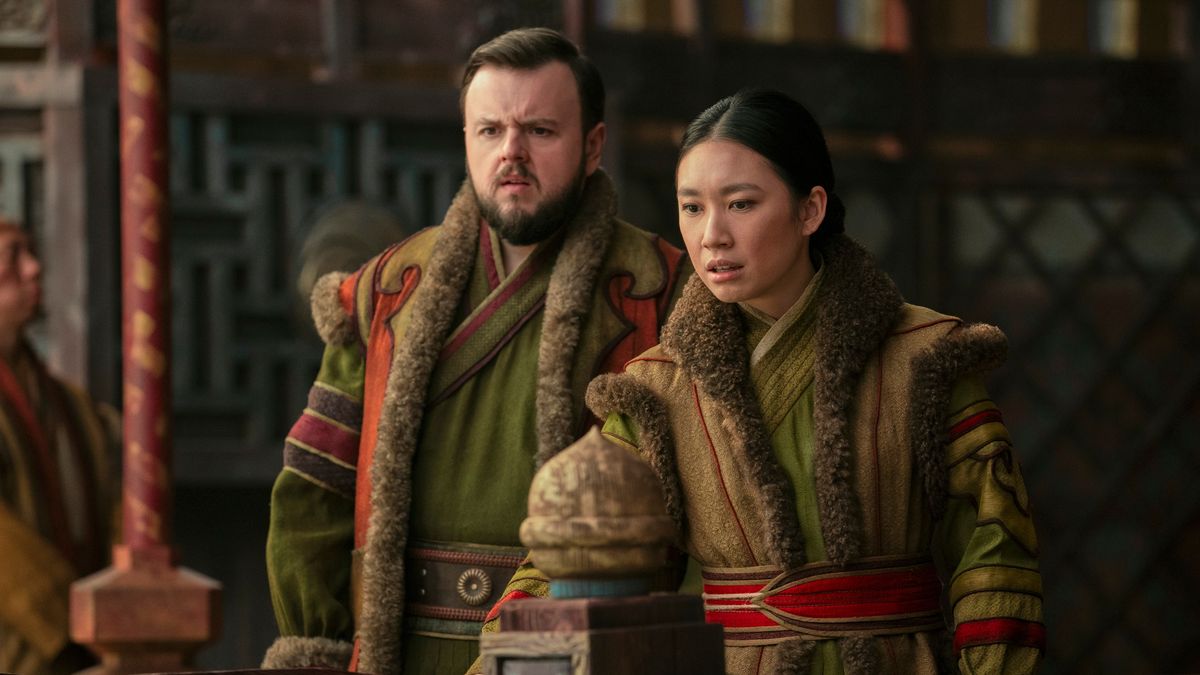
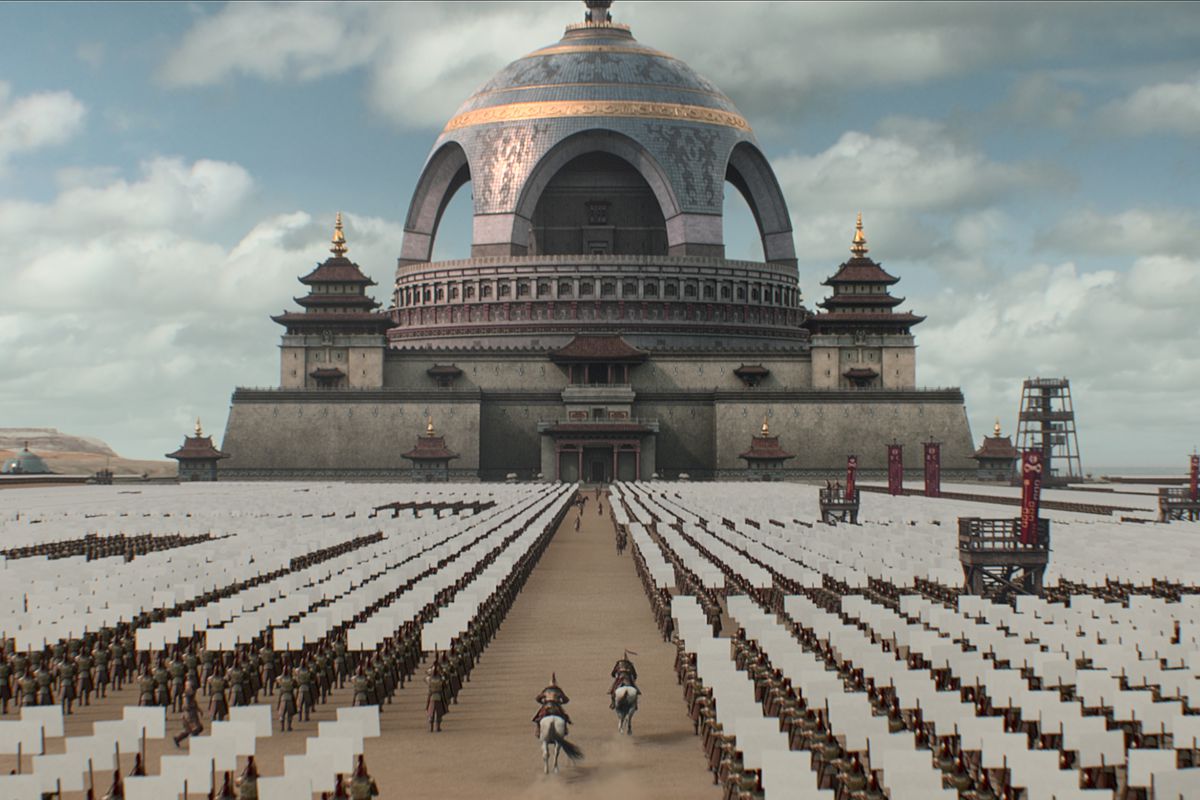
When Remembrance of Earth’s Past was first published in 2006, it was relatively well received, but it wasn’t until it found a translator and success in the West that China really adopted Liu Cixin as a monumental figure. At the Chengdu WorldCon convention last year, supposedly meant to celebrate the diversity of Chinese and global sci-fi, the centrepiece of the convention venue was a 10-metre-high replica of the Benben rover from Liu’s The Wandering Earth. The queue for his signing looped several times round the building. Even the opening ceremony gave way to the man himself shaking hands on stage with adoring, teary teachers and students. This is all very much par for the course with Chinese Spectacle, but in that moment the country discovered science fiction as a profitable export: Three Body Universe IP was now its flagship product.
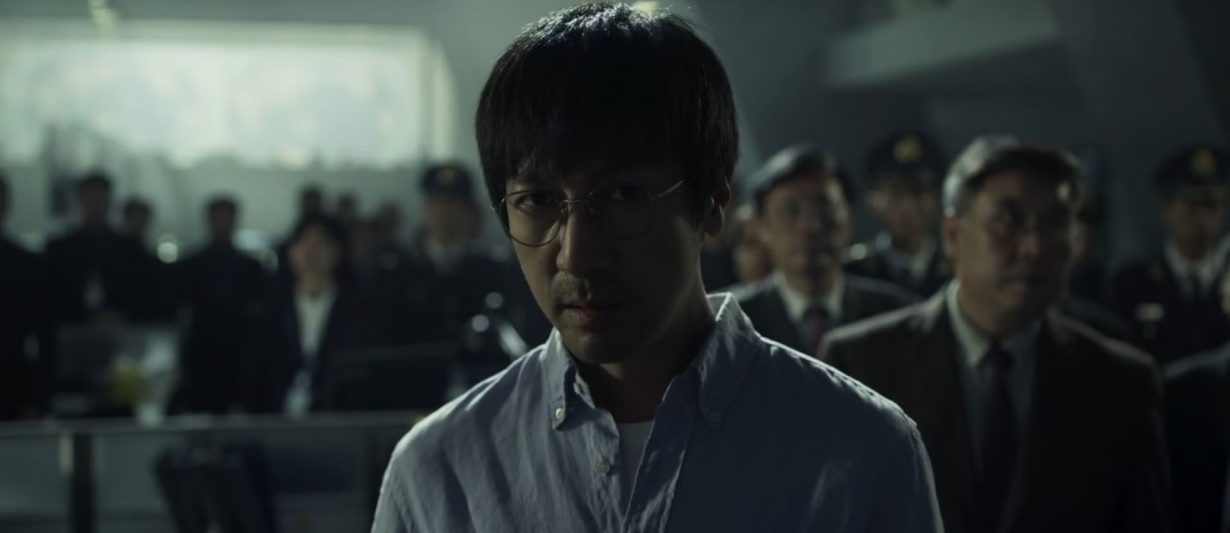
The concept has exploded into multimedia trajectories: Manhua (comics), donghua (animation) and games all introduced adaptations within the Three Body diegesis; stage shows and exhibitions followed; and a 33-episode Chinese-language series from Tencent brought the tale to a wider Chinese public who, having usually associated the language of science fiction with educational materials, seemed to fall as much under its spell as foreign audiences. While the Tencent series is already available on a handful of streaming services, Netflix has banked on its new production to become the definitive international version, with and international cast and a more global outlook – but also divorced from a wider literary tradition that nurtured the Three Body world.
From early works such as Tales of The Lunar Colony (1904) by Huangjiang Diaosou, Chinese literature’s exploration of the speculative never really stopped, not even in the harshest periods of its history. Liu Cixin is preceded by writers such as Zheng Wenguang, Tong Enzheng and Ye Yonglie, who pioneered China’s modern interplanetary fiction. He is accompanied by contemporaries such as Wang Jinkang, Han Song and Ling Chen, known for their stories of space exploration and navigation. And he is succeeded by several generations of younger writers creating increasingly diverging fiction. Though the space-mania which surrounded the 1969 US moon landing had relatively little impact on Communist-Era China, which had by then shut itself off from the outside world, writers born in this era, including Liu Cixin himself, became the first generation of post-Mao writers who used the genre to explore that dichotomy between a harsh recent history, and the opportunity to consider where the future would lead.
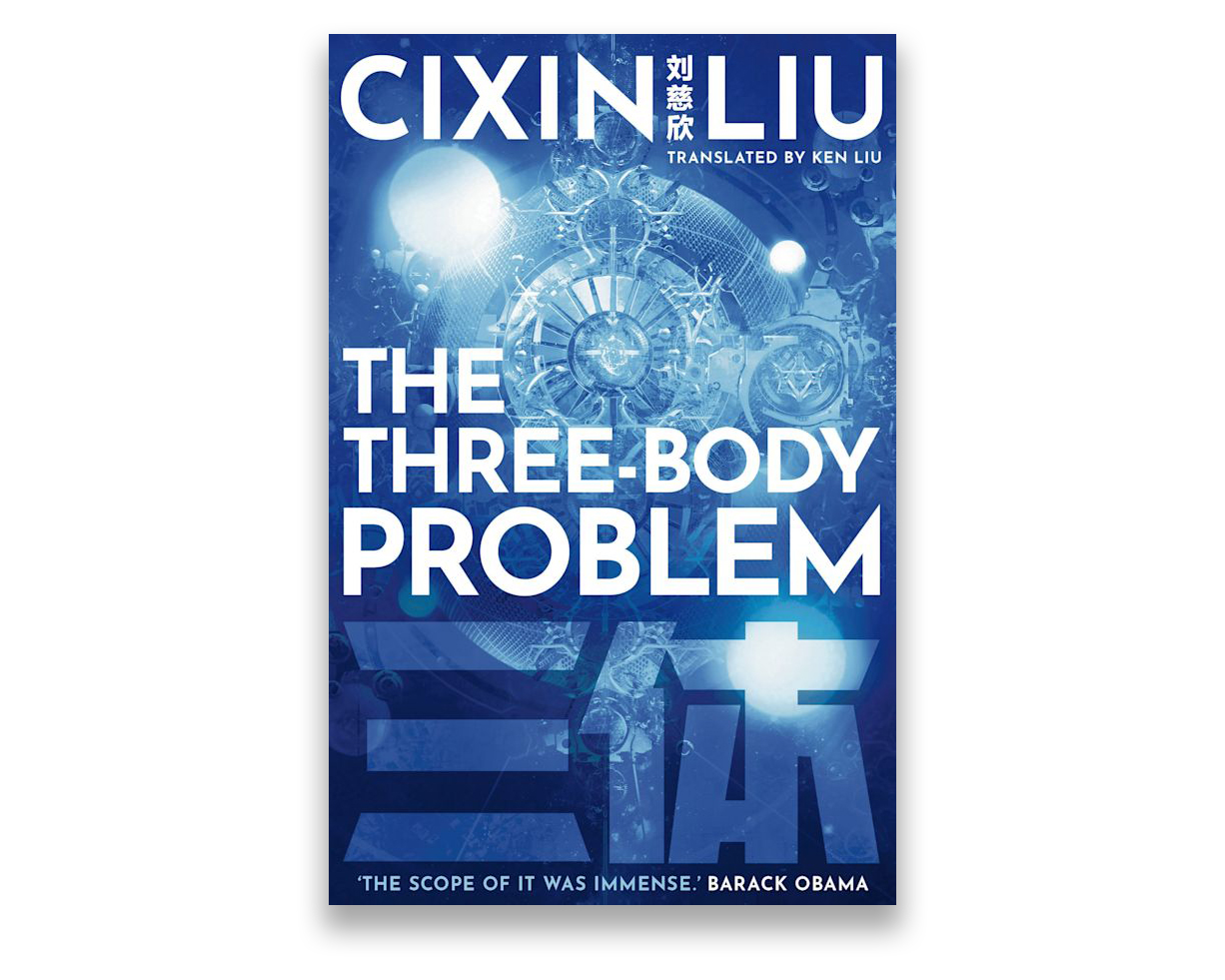
Renewed interest in the Three Body world can be no coincidence. After all, China has finally reached its own space age: as the Chinese Lunar Exploration Program, Tienwen 1 Mars Mission, and Tiangong Space Station continue to publish its findings, and public interest in astronomy soars, so too the demand for space epics among freshly-fuelled imaginations grows. Writers such as Wen Jiu Rou, Hui Hu and Shisi are using their extra-terrestrial imaginations to examine a range of contemporary concerns, from viruses and ethnic tensions to post-human and capitalist/consumerist anxiety; perhaps most memorably, Hao Jingfang’s Vagabonds (2016) imagines Mars as a former colony of Earth, in a story where diplomacy and the rapid depletion of the resources are magnified to interplanetary levels.
While there is certainly a ‘Chineseness’ to Three Body, down to its engagement with Daoist and Confucian philosophies, the development of Chinese science fiction has been inseparable from cultural interactions with the outside world, with translations of Verne, Wells, Asimov and Clarke providing key influences at various stages of the twentieth century. The secret of Liu’s global success may lie not just in the novelty it brings as a work of world literature, but in the echoes of Arthur C. Clarke’s civilisational grandness, the dystopian feel of Yevgeny Zamyatin and Aldous Huxley. At its heart, this is a story of history shaping the human condition and an interaction with other life forms whose lives are completely detached from our shared experiences.
Netflix’s producers have made it clear that 3 Body Problem is a reinterpretation of the original story for an international audience, with the author’s blessing. As a writer of Chinese culture and translator, I am always wary of removing native elements to meet ‘global tastes’, which risks diluting the original, ruining its appeal, and even rendering it incomprehensible, but in this case, the global approach seems apt. Bringing out the sense of impending planetwide disaster, and humanity’s survival at stake, the show’s casting of recognisable names will put Anglophone audiences at ease, whilst it has wisely enlisted some very talented Asian representation in the directing (Alexander Woo) and a spectrum of actors of colour to create a full and rounded cast. There’s the undeniably handsome Raj Varma (played by Saamer Usmani); Xing Cheng (Jess Hong), Saul Durand (Jovan Adepo) and Clarence Shi (Benedict Wong) are three of the most level-headed characters amid the bizarre happenings that are sending the world’s best minds into existential crises.

Substituting the UK for modern China, 3 Body Problem has significantly adapted the Chinese story, to varying degrees of success. Setting the story in London and Oxford, the producers have gone to some lengths to represent a very multicultural society among main characters, from the interracial relationships and mixed race characters to the Buddhist funeral rites and Chinese commemorative rituals performed in Oxford. The rather solitary and research-heavy lives of Chinese scientists are localised into the Open Mic nights, pub camaraderie and smokers’ chats of Oxfordians. The show’s style of gritty Brit sci-fi matches the original novel’s dystopian tones well, while the salt-of-the-earth British attitudes ground the story’s grandiose magnitudes that stretch across time, space and beyond reality – calling the super-sleek and futuristic VR vizors “shiny bicycle helmets”, for example, is a welcome splash of humour. The plot zips along, a great deal more than Tencent’s drawn-out and heavily foreboding series, with the ‘encounters’ in the 1960s China and 2000s London and Oxford masterfully juxtaposed and brought to a dramatic climax.
My reservations lie in what the show has not adapted, namely the early history of the alien encounter. Keeping China’s historical background specific and Westernising the contemporary setting has a twofold effect: it paints the former in negative shades with the brushstrokes of the destructive Cultural Revolution, while in the latter reinforcing the Eurocentric narrative of the West being the place of progress and liberation. The producers seem well aware of the issues with gender representation in Liu Cixin’s works: great efforts have been made to align female representation with contemporary Western feminism, turning the original male protagonist Wang Miao into two female ones Jin Cheng and Auggie Salazar (Eiza González), who dumbfound coming-on blokes in the pub with their super smartness.
If there are stories that can bring the world together, then science fiction must surely play its part. Whether you are in Chicago or Chongqing, there are universal truths, and equally universal responses to such truths being interrupted. The current appetite for new stories from other cultures defies the overwhelming climate of alienation we are told defines the modern world. As a Chinese immigrant author in Britain, I am immensely proud to see a Chinese science fiction story adapted internationally. Whether or not the new show captures everything fans around the world have gleaned from Liu Cixin’s books, it will certainly feed that global conversation.
Xueting C. Ni is an award-winning author, translator and Chinese culture curator based in London.
